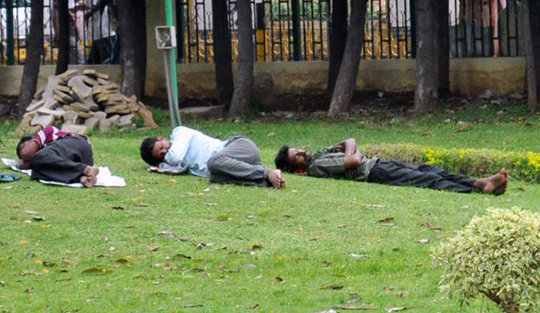Dear parents, if you want your children to have proper sleep, read this carefully. Joining a growing list of studies that tell parents to shun devices at bed-time, researchers say that children who use devices and decide what time they go to sleep, achieve less sleep and feel more sleepier the following day than their peers.
The study of children in this age-group (aged 11 to 13 years), published in the New Zealand Medical Journal, found most (72 per cent) of the 163 students interviewed by University of Otago researchers achieved recommended guidelines of an average 9 to 11 hours sleep nightly over one week.
"But that also means that almost one in four students did not achieve sleep within these guidelines, which highlights an area for improvement," said study researcher Kate Ford.
However, consistent with previous research in 15 to 17-year-old New Zealanders, the study results show less sleep on the nights where devices are used in the hour before bed.
According to the researchers, students who used devices before going to sleep were also more likely to report that they felt sleepy the following morning. Watching television before bed had no significant effect on sleep length.
There were also some interesting observations over the weekends where students went to bed later but woke later achieving similar sleep length to the school days, the researchers said.
A small group of students (six per cent) who reported less than seven hours of sleep, including a small number reporting not sleeping at all, according to the study,
Therefore, while the average across the week of 72 per cent of students reporting adequate sleep is reassuring, it is far from the goal of every child achieving sleep within the recommended guidelines," Ford said.
Dr Paul Kelly, head of the Sleep Health Service at Canterbury District Health Board, supervised the study and explained that the foundations for good health are based on proper nutrition, regular exercise and good sleep quality.
Sleep quality is often overlooked as a contributory factor to poor health.
"The study findings suggest the need for parental guidance around bedtimings and moderation of the use and availability of electronic devices before bed," Kelly said.
"Respect and protect your sleep, as good daytime functioning is reliant on adequate sleep," Kelly added.






Comments
Add new comment